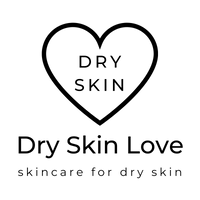Benefits of Orange Essential Oil
Orange Essential Oil
Orange essential oil has skin benefits
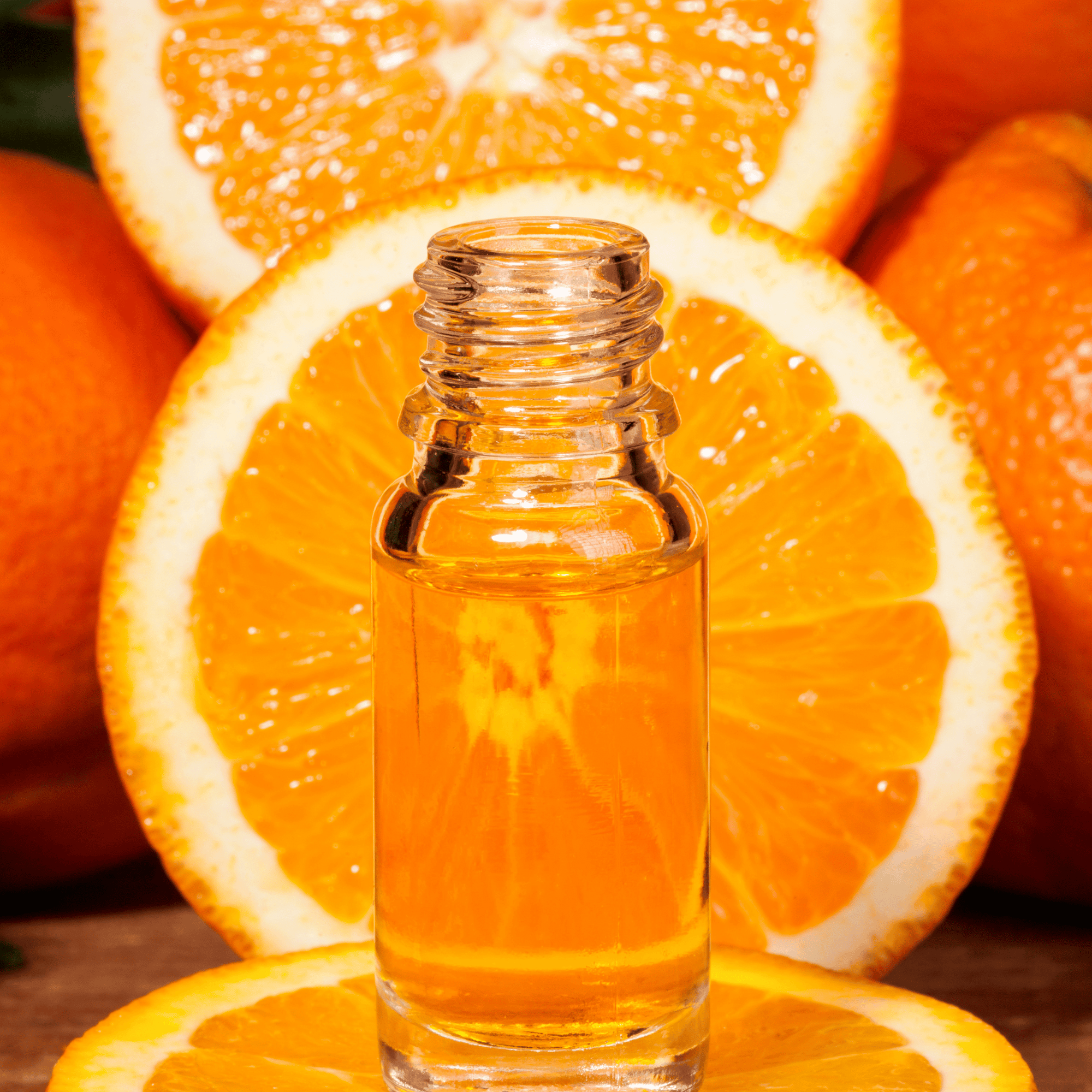
Benefits of Orange Essential Oil
What is Orange Essential Oil?
Orange essential oil is extracted from orange peel

Orange Essential Oil for Skin
Orange Essential Oil
Orange essential oil is extracted by cold-pressing the peels of the orange Citrus sinensis.
Sweet orange essential oil is one of the most popular and widely used citrus oils in aromatherapy.
The aroma of orange essential oil is delicately sweet and tangy, and smells like fresh cut oranges.
Orange essential oil is composed of ~95% D-limonene and other minor compounds.
Benefits of Orange Essential Oil
Orange Essential Oil in Skincare
Orange essential oil has a delightful citrus aroma
Benefits of Orange Essential Oil
Why is Orange Essential Oil used in Skincare?
Orange essential oil is primarily used in skincare for its aroma.
Orange essential oil smells delicately sweet and tangy with the aroma of fresh cut juicy oranges.
Orange essential oil is composed of ~95% D-limonene, which is used as a cleanser and a degreaser.
Limonene is a permeation enhancer and can boost absorption of nutrients and active ingredients.
Limonene also has antioxidant activity and may increase product shelf life
Orange essential oil is used in skincare for aroma, cleansing activity, antioxidant activity and as a permeation enhancer.


Orange Essential Oil for Skin
Are Oranges All Oranges?
The word "orange" typically refers to the fruit of the Citrus sinensis species, which is the most popular type of orange in the world.
However, the term "orange" can also refer to fruits from other species of the citrus family, such as Citrus reticulata (mandarin orange) and Citrus aurantium (bitter orange).
Although these fruits belong to the same family (Rutaceae) and genus (Citrus) as sweet oranges, they are different species with distinct characteristics.
Thus, it is more precise to use their specific species names when referring to them rather than grouping them together as "types of oranges"
Orange Essential Oil for Skin
Types of Orange Essential Oils
Citrus sinensis:
- Sweet orange essential oil
- Wild orange essential oil
- Blood orange essential oil
Citrus reticulata:
- Mandarin orange essential oil
- Tangerine essential oil
- Clementine essential oil
Citrus aurantium:
- Bitter orange essential oil
- Bergamot essential oil
- Neroli blossom essential oil
- Orange blossom extract
- Petitgrain essential oil

Benefits of Orange Essential Oil
Sweet Orange Essential Oil
Sweet orange essential oil smells like fresh oranges!

Sweet Orange Essential Oil Benefits
Sweet Orange Essential Oil
Botanical name: Citrus sinensis (L.) Osbeck
Plant part: fruit peel
Processing method: cold pressed
Composition:
- 93-96% D-limonene
- 0.15-0.70% linalool
- 0.10-0.70% decanal
- 0.40-0.80% alpha-pinene
Sweet orange essential oil is delicately sweet and tangy with the aroma of fresh cut oranges.
Dry Skin Love Wild Orange Oil Cleanser contains cold-pressed, organic sweet orange essential oil.
Benefits of Orange Essential Oil
Wild Orange Essential Oil
Wild orange essential oil smells delightful!
Orange Essential Oil for Skin
Wild Orange Essential Oil Composition
Botanical name: Citrus sinensis (L.) Osbeck
Plant part: fruit peel
Processing method: cold pressed
Composition:
- 93-96% D-limonene
- 1.5-3.5% beta-myrcene
- 0.2 -1% sabinene
- 0.15-0.70% linalool
- 0.10-0.70% decanal
- 0.40-0.80% alpha-pinene
- 0.02-0.15% beta-pinene
Wild orange essential oil has a delicious aroma - fresh, sweet, deep, rich and tangy. A unique citrus aroma.
Dry Skin Love Wild Orange Oil Cleanser contains cold-pressed, wild orange essential oil from the Dominican Republic.
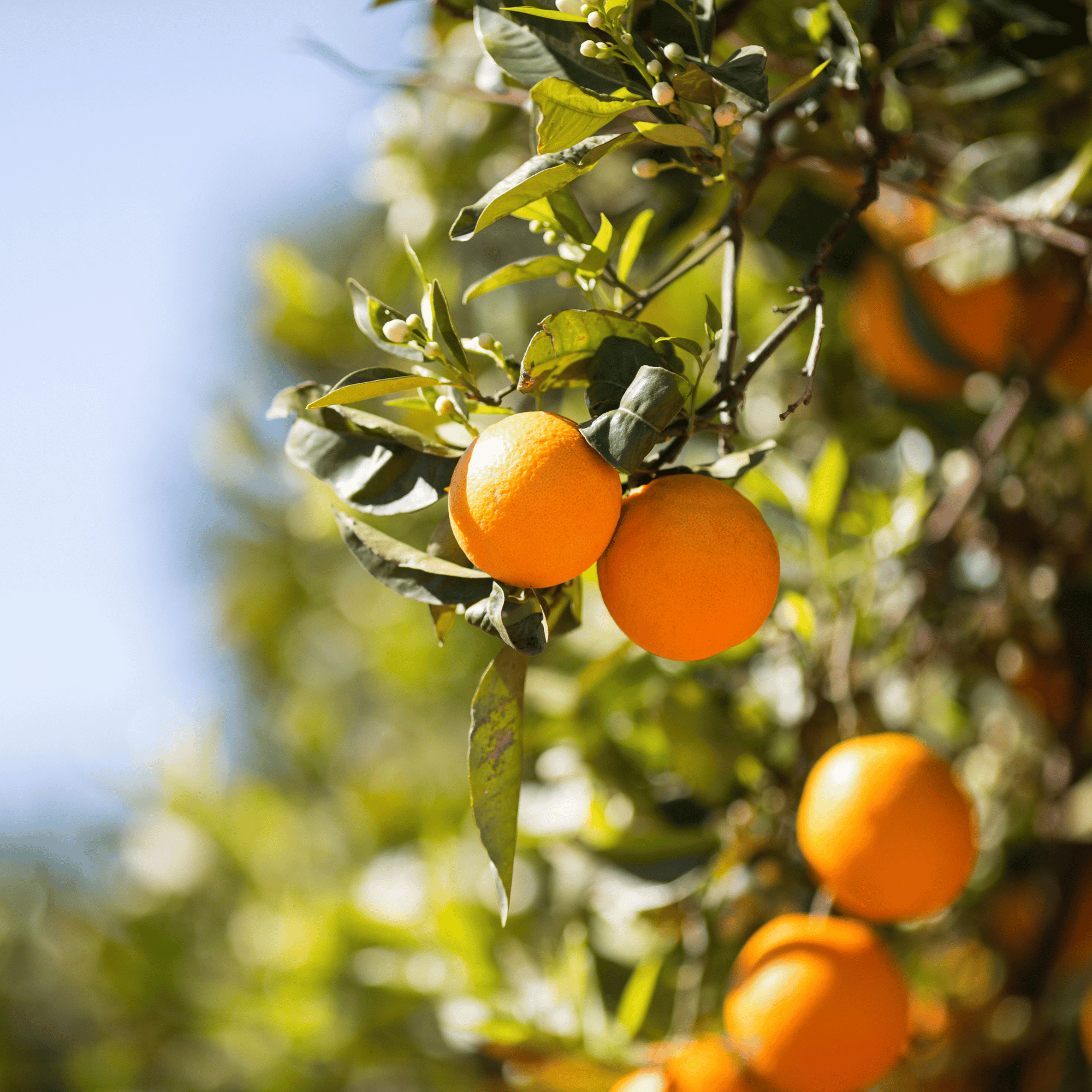
Benefits of Orange Essential Oil
Dry Skin Love Wild Orange Oil Cleanser
Dry Skin Love Wild Orange Oil Cleanser is made with wild orange essential oil and sweet orange essential oil
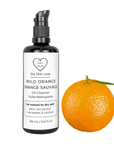
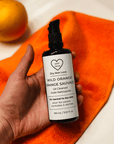
Dry Skin Love Wild Orange Oil Cleanser is a sensual oil cleanser for normal to dry skin.
Crafted with nutrient-rich plant oils, flowers, microalgae extract and aromatic essential oils.
Gently removes makeup, sunscreen and skin debris, while nourishing dry skin.
Leaves your dry skin clean, soft and plump.
Benefits of Orange Essential Oil
Orange Essential Oil Safety
Orange essential oil is safe for most people to use
Orange Essential Oil for Skin
Is Orange Essential Oil Safe?
Orange essential oil has GRAS (generally recognized as safe) status. However, there is a possible skin sensitization issue if old or oxidized oil is used.
Orange essential oil is composed of ~95% D-limonene.
Pure limonene is safe for most people to use, when it is properly diluted.
Old or oxidized limonene may cause irritation in people with dermatitis or other skin issues.
Always choose fresh products and avoid the use of old or expired products that contain limonene.


Orange Essential Oil for Skin
Citrus References
Agarwal et al. Citrus Essential Oils in Aromatherapy: Therapeutic Effects and Mechanisms. Antioxidants (Basel). 2022 Nov 30;11(12):2374.
Dosoky et al. Biological Activities and Safety of Citrus spp. Essential Oils. Int J Mol Sci. 2018 Jul 5;19(7):1966.
Fillâtre et al. Pesticides in essential oils: Occurrence and concentration in organic and conventional orange essential oils from eleven geographical origins.Anal Chim Acta. 2017 Nov 1;992:55-66.
González-Mas et al. Volatile Compounds in Citrus Essential Oils: A Comprehensive Review. Front Plant Sci. 2019 Feb 5;10:12.
Lin et al. The Chemical Compositions, and Antibacterial and Antioxidant Activities of Four Types of Citrus Essential Oils. Molecules. 2021 Jun 4;26(11):3412.
Yang et al. Inhibition of Melanogenesis by Essential Oils from the Citrus Cultivars Peels. Int J Mol Sci. 2023 Feb 20;24(4):4207.
